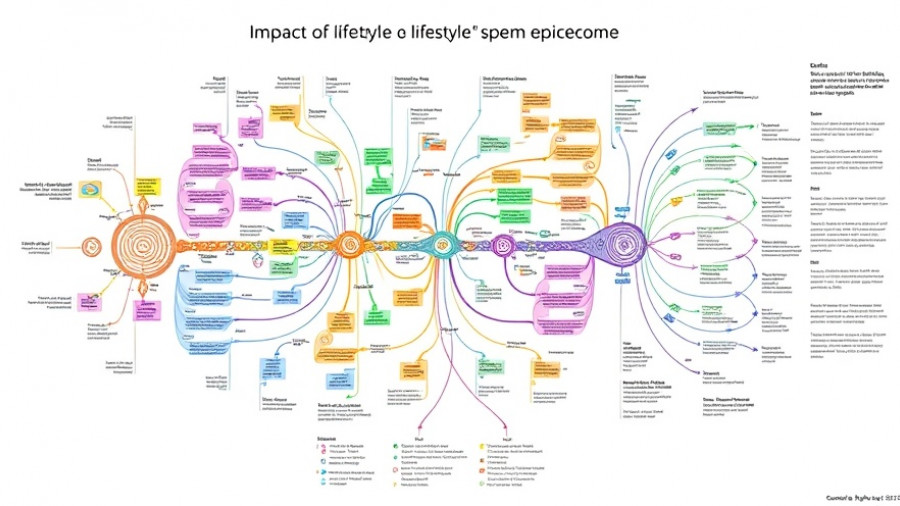
Understanding the Impact of Lifestyle on Sperm Epigenetics
In recent years, research has increasingly indicated that the lifestyle choices we make, primarily through diet, stress levels, and environmental exposure, can influence not just our health but also the epigenome of sperm. This shifts the conversation around fertility away from solely focusing on traditional biological factors to incorporating these lifestyle elements. The epigenome refers to the chemical modifications of DNA that do not change the DNA sequence but affect gene expression, making it vital to understanding male fertility.
What is the Sperm Epigenome?
The sperm epigenome comprises a variety of alterations that can influence fertility outcomes. These changes arise from several factors, including DNA methylation and histone modifications. DNA methylation involves adding a methyl group to the DNA, often silencing genes, while histone modifications can enhance or impede the transcription of genes essential for sperm function. Understanding these epigenetic alterations sheds light on their role in male infertility, showcasing that factors like environmental toxins or poor diet can lead to sperm quality issues.
The Role of Environmental Factors in Fertility
Research supports that environmental factors can significantly affect the sperm epigenome. For instance, exposure to industrial chemicals like Bisphenol A and certain herbicides has been associated with aberrations in sperm DNA methylation patterns. These alterations can lead to decreased sperm quality, impacting fertility rates and resulting in poorer health outcomes for potential offspring. Evidence suggests that even lifestyle choices such as smoking and diet can exacerbate these epigenetic changes, significantly affecting male fertility.
Fertility and Its Broader Implications
Exploring the connection between sperm epigenetics and fertility has broader implications for child health and developmental outcomes. Abnormalities in sperm epigenetics may not only lead to infertility but also be linked to developmental problems in offspring. For instance, specific epigenetic modifications in sperm have been correlated with congenital disabilities and diseases in children. As awareness of these potential consequences grows, the importance of maintaining optimal health and wellness, particularly among prospective parents, becomes more apparent.
Optimizing Lifestyle for Better Outcomes
Given that lifestyle factors can significantly influence sperm health, individuals aiming to conceive should consider actions to promote their reproductive wellness. This includes a focus on balanced nutrition rich in antioxidants, regular exercise, managing stress, and avoiding harmful substances such as tobacco and excessive alcohol. By adopting a healthy lifestyle, individuals can help ensure that their sperm epigenome is in the best possible state prior to conception, supporting improved fertility and child health.
The Future of Male Fertility Research
As research progresses, it opens up potential avenues for interventions aimed at mitigating the adverse effects of environmental and lifestyle factors on male fertility. By understanding how to safely modify epigenetic marks in sperm, we may be able to develop targeted therapies or lifestyle intervention strategies that enhance fertility outcomes. This could include the use of supplements aimed at correcting nutritional deficiencies or further studies into epigenetic reprogramming techniques.
Conclusion: A Call for Public Awareness
Given the implications of sperm health on not only fertility but also child health, public awareness campaigns could play a vital role in promoting changes that support optimal health and wellness. Communities should be encouraged to commit to healthier lifestyle choices, ultimately benefiting reproductive health on a broader scale. As we delve deeper into this fascinating link between epigenetics and lifestyle, it becomes clear that knowledge is power when it comes to improving fertility outcomes.
 Add Element
Add Element  Add Row
Add Row 




Write A Comment